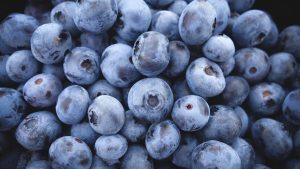Dwindling Supply of Pine Bark Puts Blueberry Industry in Jeopardy
In the last 10-15 years, the blueberry industry has exploded in Florida. Growers have seen its popularity increase globally, and the potential of welcomed profits from the tasty berry has prompted more growers to enter the market and dedicate more acreage to the delicious and healthy super fruit.
Many parts of Florida where blueberries are grown have a soil with a high alkaline and pH content. To battle this, the blueberry growers use thick layers of pine bark which creates a low pH. The blueberries are actually grown in the pine bark.
However, there has recently been a deficit of pine bark, and some growers are worried there won’t enough bark to go around.
The reasons for this pine bark deficit are unclear, but there are several theories. One theory blames an excessive rainfall, and another suggests the higher amount of acreage being dedicated to blueberries is responsible. An excessive rain season doesn’t allow loggers to get to areas ready for harvesting. Add that to more blueberry farms on the market, and it equals a lower supply coupled with a higher demand.
Some blame the Gainesville Renewable Energy Center biomass plant. Before it came online, the major supplier of pine bark was the Palatka branch of Georgia-Pacific, a manufacturer of paper products.
The plant uses huge amounts of wood waste as energy for Gainesville Regional Utilities, but representatives there claim they haven’t received any shipments of bark in over 90 days. They claim that most of their wood waste comes from tree farms, and about a quarter of it comes from tree trimmings.
Some growers are testing new methods including yard waste and tree trimmings, but so far nothing has equaled the effectiveness of pine bark.
Read more:


